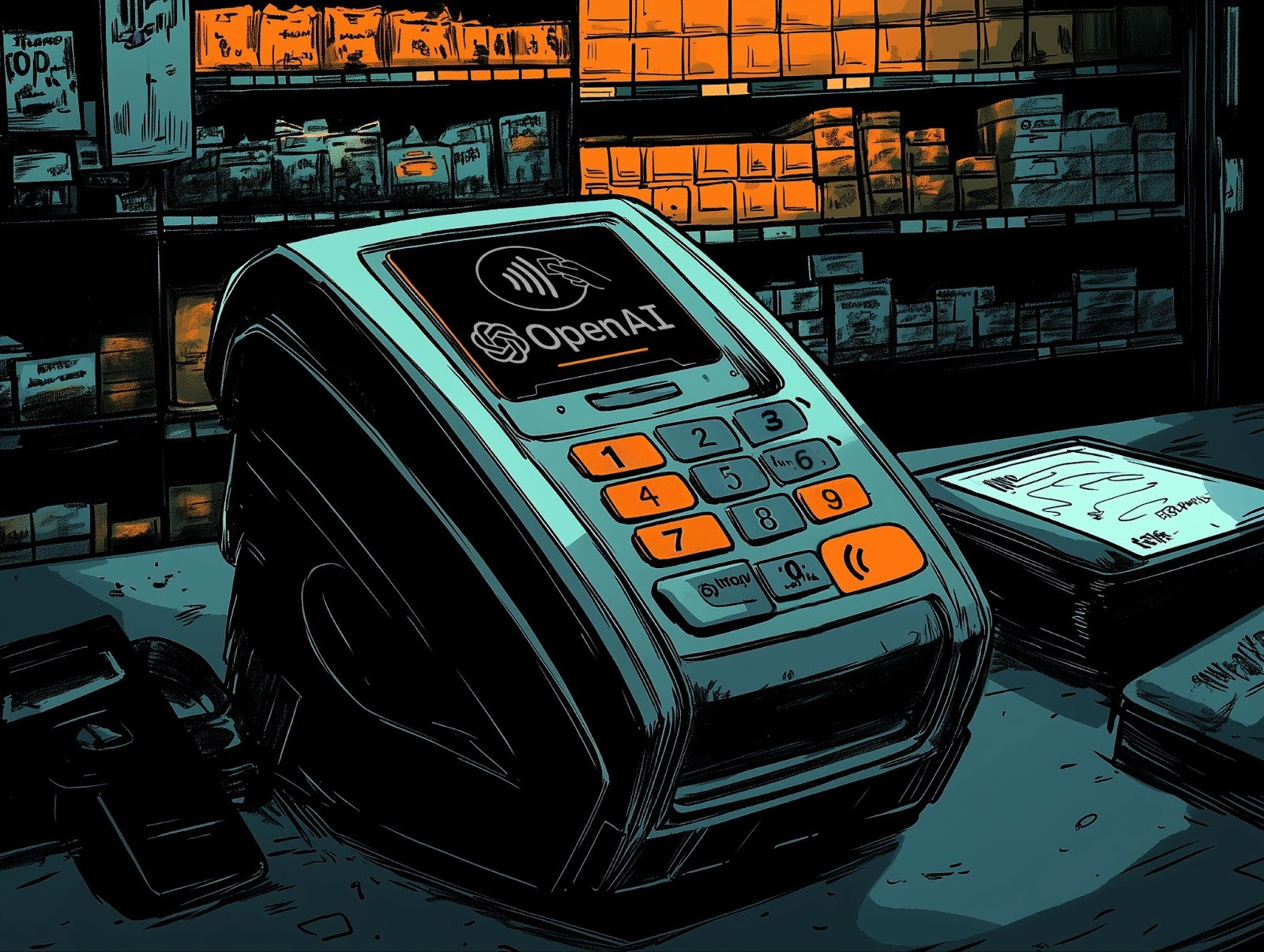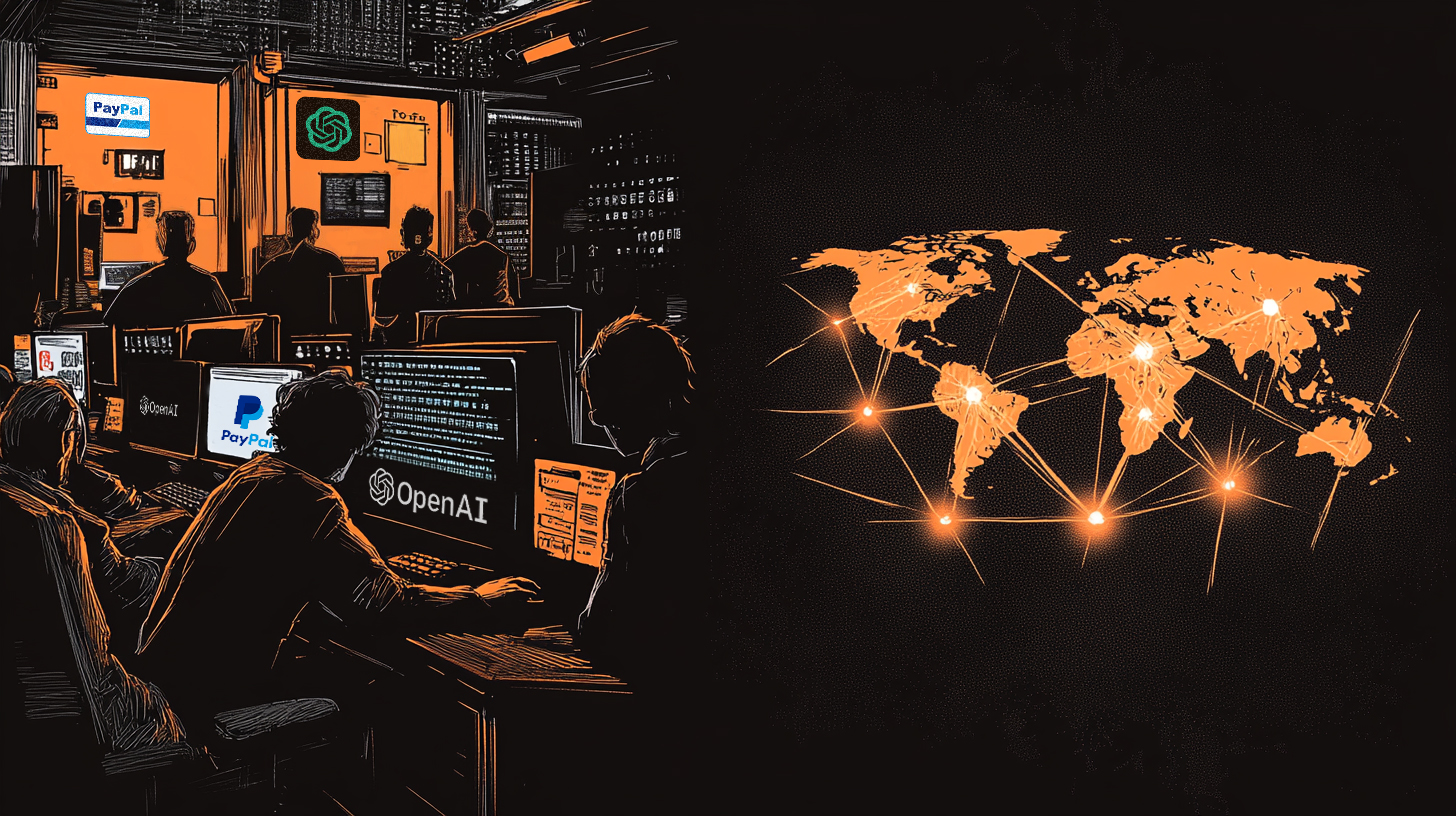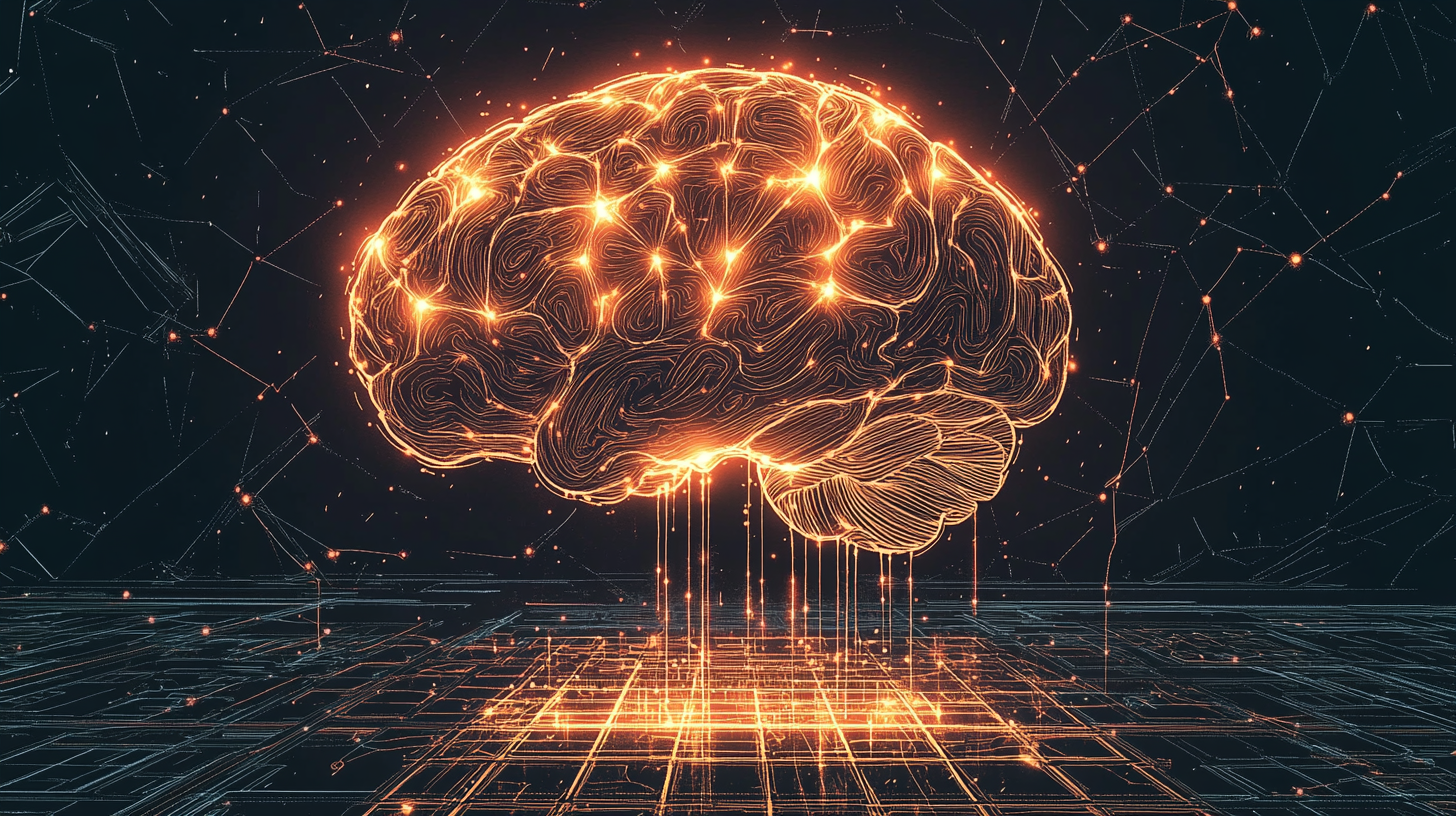AI Agents Are Coming for Your Shopping Cart — And PayPal Just Opened the Door

Gregory Cowles
Chief Strategy Officer, Co-Founder

This Post is Disseminated on behalf of Intellistake Technologies Corp.
There’s something strangely poetic about what just happened this week.
Two headlines. Two signals.
First, Coinbase and a16z backing x402; a decentralized payment protocol promising instant, trustless payments between AI agents1. Then, PayPal announcing a partnership with OpenAI to let ChatGPT users make purchases and payments directly inside the chat2.
Different players, same direction: AI is beginning to transact.
That, to me, feels far more important than most people realize. We’ve spent the past year teaching AI to think and speak. Now it’s learning to act. To spend. To move value.
And if that doesn’t make you pause for a second, it probably should.
The Convenience Trap

PayPal’s move is smart; elegant, even. It instantly transforms ChatGPT from a chatbox into a checkout lane.. The pitch writes itself: “Talk to an AI, buy what you need, get on with your day.”
And yes, it’s genuinely useful. I’ll use it. You’ll use it. Everyone potentially will.
But let’s be honest, this is the internet’s oldest trick: sell you convenience while quietly introducing dependence. It’s not evil; it’s just gravity.
The system still runs on centralized rails. Same bank clearances. Same intermediaries. Same jurisdictional friction that slows global flow. It’s “instant” only in the way airport Wi-Fi is “free.”
Now imagine millions of AI agents (not humans) trying to run economic tasks in real time: paying APIs, renting compute, buying datasets, settling with each other autonomously. Suddenly, those same rails start to look like narrow pipes. You can’t build an autonomous economy on permission slips.
Protocols like x402 represent the opposite end of that spectrum; decentralized, borderless, and owned by no one in particular. That’s precisely why they matter. They’re not competitors to PayPal. They’re prototypes of an internet where AI can move value without permission.
A Winter Call and a Simple Realization

I remember a call with Jason one winter evening in late 2024; his morning in Vancouver, still dark there, the kind of quiet you only get before sunrise.
We were catching up, and I was explaining what I saw as AI’s looming bottleneck: its intelligence was accelerating faster than the systems supporting it. The compute, the data access, the transaction layers; all still built for human control, not machine autonomy.
And as I said “AI is going to outgrow the rails before anyone realizes it’s even on them”; Jason stopped mid-thought. You could tell it hit home. He agreed almost instantly.
That conversation became something of a pivot point for both of us. It helped crystallize what would later define Intellistake’s focus; that AI’s evolution depends on the infrastructure beneath it, and that infrastructure has to be decentralized if we want AI to serve society rather than dominate it.
Because if the systems remain centralized, the intelligence will be too.
Teaching Machines How to Pay

Which brings us back to payments.
The x402 protocol, the one that made headlines, is built and candidly named around the old internet error code “402 – Payment Required.” It turns out the web always knew it would need a native payment layer…it just took us three decades and a few trillion dollars of compute to realize it.
In simple terms, x402 lets machines pay each other directly. No banks. No cards. Just clean, cryptographic settlement.
Think of it as teaching the internet to pass the hat; automatically.
Blockchain is what makes that possible. It’s an accounting system that machines can read and verify without asking permission. It doesn’t care where you live, what you look like, or which institution you belong to. It just enforces the rules as written; no bias, no favoritism…no counterfeit.
That’s why I sometimes describe blockchain as AI’s immune system. It protects against bad actors, single points of failure, and the subtle corruption that creeps in when profits and power concentrates.
Without decentralization, the world risks building the most powerful intelligence system humanity has ever seen; and then locking it inside a walled garden. The tragedy wouldn’t be that it failed, but that it succeeded exactly as designed — to concentrate power, not distribute it.
Centralization vs. Scale

I don't intend to sound overly fatalistic here. PayPal and OpenAI will absolutely accelerate adoption. People trust them, and they know how to scale products. That’s a good thing; we need those bridges between traditional finance and intelligent systems.
But let’s be honest: centralized systems don’t scale indefinitely. They expand until they hit the limits of control.
Decentralized networks, on the other hand, scale because they relinquish control. They distribute it. They let anyone (or anything) participate as long as they follow the rules of the protocol.
That’s why, long term, the real innovation won’t come from who integrates payments first, but who builds the open systems that make payments permissionless.
That’s the world we’re building toward; and, in many ways, the one Jason and I were already talking about that winter morning.
The Quiet Beginning

So yes, PayPal and OpenAI just opened the door. But it’s the decentralized protocols, and the infrastructures behind them, that will define the room everyone walks into.AI agents are coming for your shopping cart. But they’ll soon want more; to manage compute, to trade data, to self-fund, maybe even to collaborate economically.
That future sounds complex, but it’s simple at its core: if we’re going to build machines that act autonomously, we should make sure they act within systems that serve society.
No single points of failure. No corporate chokeholds. No gatekeepers deciding who gets access to the next industrial revolution.
Just open systems, transparent rules, and a technology stack that’s too distributed to corrupt.
Because if AI is the brain of the future; blockchain is the conscience keeping it honest.
For education only, not investment advice. Any forward-looking points are my views today, may change, and include risks.
Disclaimer
There has been significant volatility in digital assets and their value can decline rapidly, which in turn would lead to a decline in the stock price of companies holding digital assets. Intellistake is a start-up that does not have the same access to capital as other larger more established companies.
Intellistake has just commenced operating its business and is at an early stage of development. Intellistake is entering this space by acquiring and operating blockchain validator hardware that supports AI networks and investing in AI-related digital tokens to primarily operate validator hardware.
Intellistake is developing custom AI software systems called "AI Agents" for businesses. It recently announced the development of IntelliScope, a newly designed enterprise artificial-intelligence (AI) suite that applies decentralized AI technologies to deliver transparent and verifiable corporate intelligence. IntelliScope, which is in testing, is being publicly introduced as Intellistake's enterprise AI suite, reflecting the Company's focus on advancing practical applications of decentralized AI technologies.
The IntelliScope suite is being developed as a collection of modular AI agents, each intended to address specific enterprise challenges. Development has advanced through internal closed testing, where functionality is being refined and validated. Built to leverage decentralized AI technologies developed within the ASI Alliance FET token ecosystem, IntelliScope is now preparing to move into closed beta testing with an enterprise client, a phase focused on gathering feedback to shape premium features and expand real-world use cases.
The Company intends to deliver these solutions either as one-time projects or ongoing subscription services. Revenue is expected to come from implementation fees and monthly subscription payments. The Company does not presently have any customers. Intellistake is just commencing operations. It is targeting significant growth but its business is subject to several risks related to general business, economic and social uncertainties; the sufficiency of cash to meet liquidity needs; legislative, political and competitive developments; the inherent risks involved in the digital currency and general securities markets; the volatility of digital currency prices and the additional risks identified in the "Risk Factors" section of the Company’s filings with applicable securities regulators. Intellistake has not yet developed or commercialized its AI solutions.
This report contains "forward-looking information" concerning anticipated developments and events related to the Company that may occur in the future. Forward looking information contained in this report includes, but is not limited to, all statements in respect of the Company's growth and development, the operations and business segments of the Company, expectations regarding the market for gold, digital currencies and decentralized AI, expectations for infrastructure to support digital currencies,support for decentralized AI and blockchain networks, a broader strategy to grow the Company’s position in AI and tech digital assets, revenue generation potential and details regarding staking and validator operations.
In certain cases, forward-looking information can be identified by the use of words such as "expects", "intends", "anticipates" or variations of such words and phrases or state that certain actions, events or results "may", "would", or "might" suggesting future outcomes, or other expectations, assumptions, intentions or statements about future events or performance. Forward-looking information contained in this report is based on certain assumptions regarding, among other things, the Company will continue to have access to financing until it achieves profitability; the technology and blockchain industries in which the Company intends to focus its business in will grow at the rate and in the manner expected; the ability to attract and retain qualified personnel; the success of market initiatives and the ability to grow brand awareness; the ability to distribute Company's services; the Company creates strategies to mitigate risks associated with cryptocurrency price fluctuations; the Company remains compliant with all applicable laws and securities regulations; the Company engages and collaborates with local experts, as necessary, to address jurisdiction-specific matters and ensures compliance with foreign regulations to avoid penalties; the Company addresses any potential cybersecurity threats promptly and effectively; the AI Agent technology can be developed and deployed with real world applications; and the ability to successfully deploy the new business strategy as a result of the change of business. While the Company considers these assumptions to be reasonable, they may be incorrect.
Forward looking information involves known and unknown risks, uncertainties and other factors which may cause the actual results to be materially different from any future results expressed by the forward-looking information. Such factors include risks related to general business, economic and social uncertainties; failure to raise the capital necessary to fund its operations; inability to create strategies to mitigate the risks associated with cryptocurrency price fluctuations; risks relating to the ability to develop the AI Agent technology and relating to the deployment of validator operations; the ability to acquire digital tokens at reasonable acquisition prices; the costs of regulation in the digital asset industries increase to the extent that the Company is no longer generating sufficient returns for shareholders; failure to promptly and effectively address cybersecurity threats; insufficient resources to maintain its operations on a competitive basis; and the actual costs, timing and future plans differs expectations; legislative, environmental and other judicial, regulatory, political and competitive developments; the inherent risks involved in the cryptocurrency and general securities markets; the Company may not be able to profitably liquidate its current digital currency inventory, or at all; a decline in digital currency prices may have a significant negative impact on the Company's operations; the Company's success may depend on the continued involvement of key personnel, including advisors, whose involvement cannot be guaranteed; institutional adoption of decentralized AI infrastructure remains uncertain and may not occur at the pace or scale anticipated; evolving regulatory frameworks, including those related to AI (such as Canada's proposed Artificial Intelligence and Data Act), may impose additional compliance burdens or restrict certain business activities; valuation figures are based on publicly available market data and internal assessments at the time of the referenced transactions and may not reflect current or future valuations; the volatility of digital currency prices; the inherent uncertainty of cost estimates and the potential for unexpected costs and expenses, currency fluctuations; regulatory restrictions, liability, competition, loss of key employees and other related risks and uncertainties; delay or failure to receive regulatory approvals; failure to attract qualified personnel, labour disputes; and the additional risks identified in the "Risk Factors" section of the Company's filings with applicable Canadian securities regulators.
Although the Company has attempted to identify factors that could cause actual results to differ materially from those described in forward-looking information, there may be other factors that cause results not to be as anticipated. Readers should not place undue reliance on forward-looking information. The forward-looking information is made as of the date of this report. Except as required by applicable securities laws, the Company does not undertake any obligation to publicly update forward-looking information.






